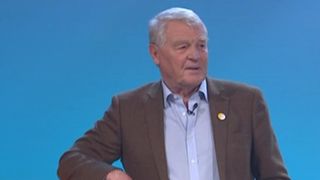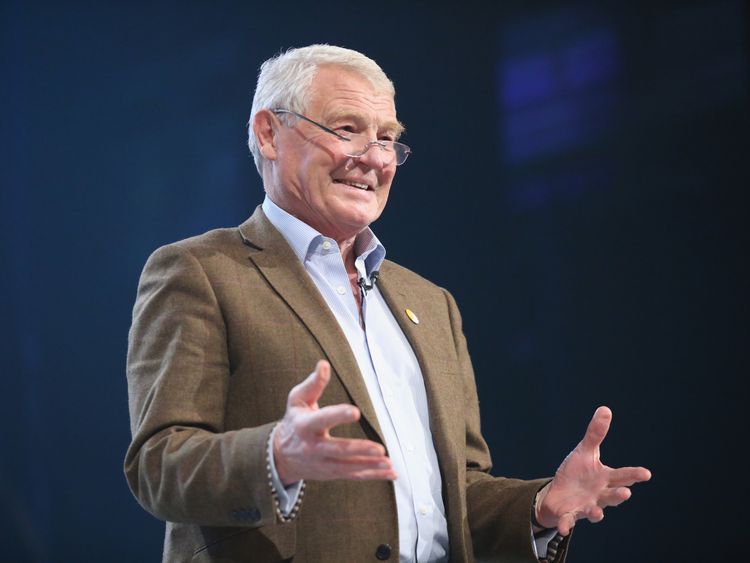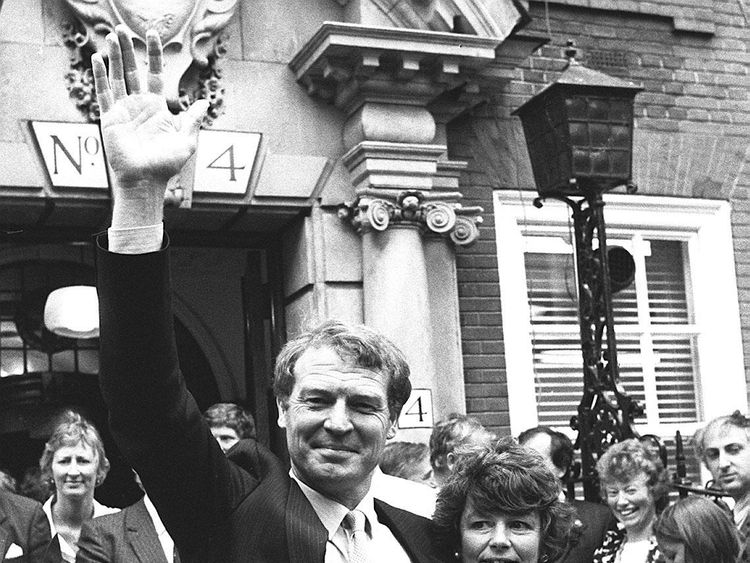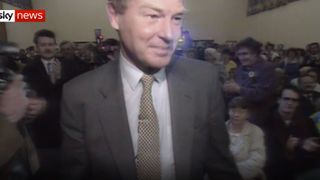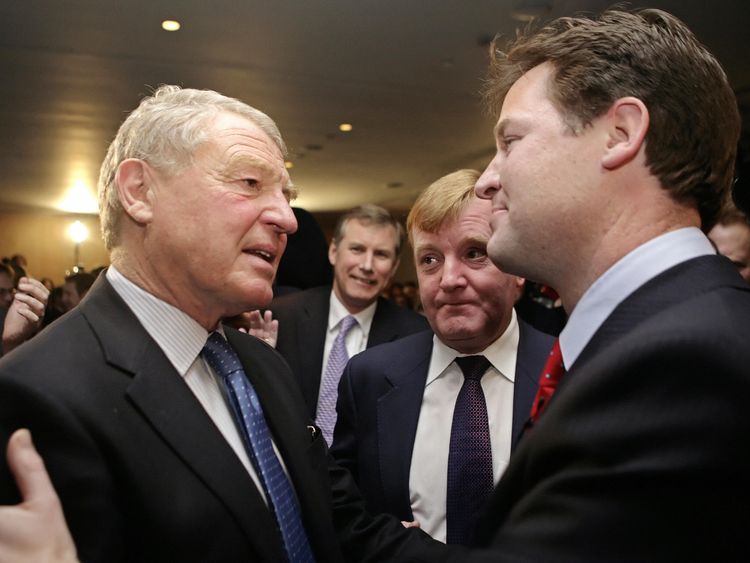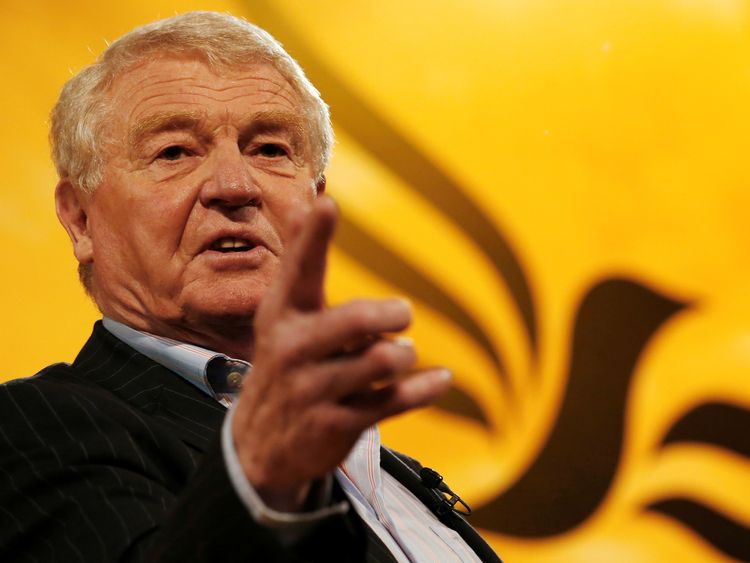Oxford University's near-monopoly of political leadership
10 of the 14 (71%) UK prime-ministers between 1945 and 2019 were educated at Oxford University. One, Gordon Brown was educated at university in Scotland. None went to Cambridge, Durham, Manchester, London or any other English university.
Winston Churchill, James Callaghan and John Major became prime-minister without having had any formal higher education.
At the European Speechwriters Network conference in April, held at Queen's College, Oxford, I showed the following clip twice) before inviting the audience to rank the speakers according to which ones they thought the most effective.
It only went back as far as Harold Wilson - receiving an honorary degree at the then new university of Lancaster - in the 1970s. But the time available for my presentation wouldn't have been long enough to include every Oxford-educated PM since Clement Attlee.
This is the short clip that I showed and you now have the chance to do what the original audience did and decide for yourselves which were the most most effective speakers:
The next question is to decide on how each of the above compared with all the others?
1. Clement Attlee (Labour), University College, modern history
2. Sir Anthony Eden (Conservative), Christchurch College, modern languages
3. Harold Macmillan, Balliol College, Latin, Greek and ancient history
3. Alec Douglas-Home, Christchurch College, modern history
5. Harold Wilson, Jesus College (PPE*), then Fellow of University College
6. Edward Heath, Balliol College (PPE*) and organ scholarship, Keble College
7. Margaret Thatcher, Somerville College. chemistry
8. Tony Blair, St John's College, law
9. David Cameron, Brasenose College, PPE*
10. Theresa May, St Hugh's College, geography
(*PPE = politics, philosophy and economics)
Best Speaker?
After watching the first clip the audience at the European Speechwriters Conference (of about 100 from different countries in Europe) awarded the gold medal to Tony Blair, the silver medal to Margaret Thatcher and bronze to David Cameron.
Had it not been for his widely publicised attempt to unite a divided Tory party by holding (and losing) the brexit referendum, he might have beaten Thatcher to the silver medal. It was, after all, a ten-minute unscripted speech at a Conservative party conference beauty parade that had won him the leadership in the first place.
Of the other Oxonian PMs, Attlee would surely get the wooden spoon as the least inspiring public speaker, even though he presided over some of the most important post-war innovations like the foundation of the National Health Service.
Macmillan continued to be a brilliant speaker until he was well into his 90's. Home was apparently more interested in playing cricket than reading history at Oxford and isn't remembered for any famous speeches.
Wilson was arguably the first PM who understood how to make the most of television. Clip 5 shows his skill at dealing with hecklers. He was the first to call TV interviewers by their first names, thereby implying that they were good friends - and making it more difficult for them to ask hostile questions. Puffing his pipe, during interviews was a neat way to buy himself more time to work out an 'impressive' answer. And, unlike all the other Oxonians, he was the only one who managed to retain his Yorkshire accent during his years in Oxford. All of which enabled him to come across as 'a man of the people'.
Although from a similar middle-class background, Edward Heath lacked Wilson's ability to appeal to a mass audience and, though he'd negotiated the UK's successful entry into the European Common Market (later the European Union), he's remembered more for his public and continuing animosity towards his successor as Tory party leader (Margaret Thatcher) than for memorable quotations or speeches.
So we are left with Blair, Thatcher and Cameron as the most impressive recent Oxonian speakers.
Will yet another Oxford graduate take over from Theresa May?
Theresa May's most famous early speech was back in 2002, when, as Tory party chairman, she warned that many voters regarded the Conservatives as 'the nasty party'.
More recently she's been heard losing her voice during her leader's speech and at prime minister's question time in the House of Commons (see this blog, 13th March, 20019).
Yesterday the conspirators won and she announced that she would be quitting the party leadership in early June - so the party and the public would have to prepare itself for yet more internecine battles between ambitious Tories bidding for the top job.
The following are already being widely mentioned as candidates. Six of the nine are Oxford graduates, three went to 'provincial' universities (Exeter, Warwick and Reading) and therefore have little or no hope of winning.
Among the Oxonians, the dark horse is Matt Hancock (Secretary of State for Health and Social Care). Unlike, Messrs. Gove, Hunt, Johnson and Raab, he went to both Oxford (dark blue) and Cambridge (light blue).
- Michael Gove, Lady Margaret Hall, Oxford (English)
- Said Javid, University of Exeter (Economics and Politics)
- Jeremy Hunt, Magdalen College, Oxford (PPE)***
- Boris Johnson, Balliol College, Oxford (Latin, Greek and Ancient History)
- Matt Hancock, Exeter College, Oxford (PPE), Christ's College, Cambridge (Economics)
- Andrea Leadsom, University of Warwick, (Politics)
- Penny Mordant, University of Reading (Philosophy)
- Dominic Raab, Lady Margaret Hall, Oxford (Law)
- Rory Stewart, Balliol College, Oxford (PPE)
Competition
A signed copy of my book Speechmaking and Presentation Made Easy will be awarded to the first person who accurately predicts the winner.
Starting date: Today
Closing date: The day before the winner is announced
Starting date: Today
Closing date: The day before the winner is announced








